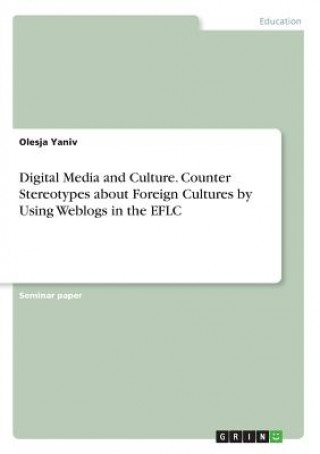
Kód: 14171563
Digital Media and Culture. Counter Stereotypes about Foreign Cultures by Using Weblogs in the EFLC
Autor Olesja Yaniv
Seminar paper from the year 2016 in the subject English - Pedagogy, Didactics, Literature Studies, grade: 1,3, Justus-Liebig-University Giessen (Anglistik), course: Digital Media in EFLC, language: English, abstract: New media - e ... celý popis
- Jazyk:
 Angličtina
Angličtina - Väzba: Brožovaná
- Počet strán: 28
Nakladateľ: Grin Publishing, 2016
- Viac informácií o knihe

Mohlo by sa vám tiež páčiť
-

In the Land of the Dacks
25.16 € -
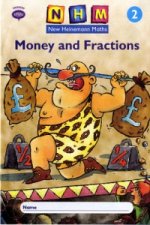
New Heinemann Maths Yr2, Money and Fractions Activity Book (8 Pack)
27.72 € -

Indianapolis 500 Rankings
13.45 € -

Interfaces in Condensed Systems
123.36 € -
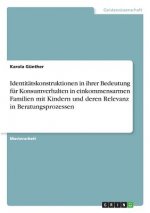
Identitätskonstruktionen in ihrer Bedeutung für Konsumverhalten in einkommensarmen Familien mit Kindern und deren Relevanz in Beratungsprozessen
147.70 € -
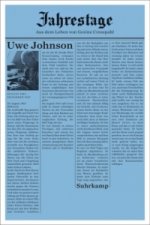
Jahrestage 1. Bd.1
14.99 € -9 % -

Fondear
22.49 €
Darujte túto knihu ešte dnes
- Objednajte knihu a vyberte Zaslať ako darček.
- Obratom obdržíte darovací poukaz na knihu, ktorý môžete ihneď odovzdať obdarovanému.
- Knihu zašleme na adresu obdarovaného, o nič sa nestaráte.
Viac informácií o knihe Digital Media and Culture. Counter Stereotypes about Foreign Cultures by Using Weblogs in the EFLC
Nákupom získate 109 bodov
 Anotácia knihy
Anotácia knihy
Seminar paper from the year 2016 in the subject English - Pedagogy, Didactics, Literature Studies, grade: 1,3, Justus-Liebig-University Giessen (Anglistik), course: Digital Media in EFLC, language: English, abstract: New media - especially the personal computer - play a significant part in peopleżs private area as well as in the occupational area. Thus, there is talk about transition of industrial society into an information society. Such transition has been fulfilled since the end of the 1960s and includes a digitalized and interconnected world for the greatest extend. Those changes affect the whole everyday reality; an increasingly number of the population spend their time in front of monitors inside a virtual reality. The internet and mobile devices facilitate communication with both, familiar and unknown people all over the world. For the young generation - the so called "digital natives" - the constantly networking and opportunity of gaining knowledge easily became obviously. Furthermore, the kind of learning has changed as well. Due to the digitalized world knowledge is not only represented differently but also accessible at any place and is not bound to a personal producer or mediator. The digital learners should not "consume" rehashed knowledge anymore but, need to be able to have the ability to use available knowledge and information, screen those usefully and thus, reach efficient learning outcomes. Hence, media literacy becomes a key qualification to participate in the information society. In the course of lifelong learning and concomitant increasingly compulsion to flexibility of learning, weblogs as a form of e-learning can represent an efficient media to realize a new culture of teaching and learning since contents are spread independently from place and time and are made available for the recipients. Besides, the access to blogs created by people and companies all over the world enables an absorption and participation in foreign cultures, values and perceptions by the digital learners. Blogs make our society more interconnected and self-aware. By considering the aspects of education and intercultural learning written in the scholastic standards, it is necessary to examine blogs concerning their features and potentials, possible applications in the English foreign language classroom and finally, to provide theory into a practical and realistic teaching unit of a 11th grade at a German advanced level of a high school.
 Parametre knihy
Parametre knihy
44.26 €
- Celý názov: Digital Media and Culture. Counter Stereotypes about Foreign Cultures by Using Weblogs in the EFLC
- Autor: Olesja Yaniv
- Jazyk:
 Angličtina
Angličtina - Väzba: Brožovaná
- Počet strán: 28
- EAN: 9783668283459
- ISBN: 3668283451
- ID: 14171563
- Nakladateľ: Grin Publishing
- Hmotnosť: 55 g
- Rozmery: 210 × 148 × 1 mm
- Rok vydania: 2016
Obľúbené z iného súdka
-

Berserk Deluxe Volume 1
44.47 € -13 % -

Berserk Deluxe Volume 2
52.17 € -

Haunting Adeline
30.81 € -

Berserk Deluxe Volume 3
48.88 € -4 % -

Atomic Habits
15.91 € -31 % -

Cry Baby Coloring Book
9.85 € -13 % -

The Official Stardew Valley Cookbook
23.20 € -19 % -

House of Leaves
23.20 € -23 % -

Hunting Adeline
31.83 € -

Powerless
11.91 € -9 % -

Harry Potter and the Prisoner of Azkaban (Minalima Edition)
35.53 € -14 % -

Chainsaw Man, Vol. 15
11.08 € -18 % -

Gravity Falls Journal 3
18.38 € -14 % -

Iron Flame
16.22 € -26 % -

Berserk Deluxe Volume 4
46.52 € -9 % -

JUJUTSU KAISEN V22
11.19 € -17 % -

White Nights
3.58 € -24 % -

Berserk Deluxe Volume 5
50.53 € -1 % -

Twisted Love
9.75 € -19 % -

Dungeons & Dragons Essentials Kit (D&d Boxed Set)
24.54 € -6 % -

Berserk Deluxe Volume 6
51.14 € -

Bungo Stray Dogs, Vol. 8 (light novel)
16.63 € -

Surrounded by Idiots
10.67 € -12 % -

No Longer Human
13.45 € -10 % -

The 48 Laws of Power
24.54 € -10 % -

Fourth Wing
10.16 € -16 % -

Twisted Lies
9.75 € -25 % -

A Little Life
17.45 € -

Court of Thorns and Roses Paperback Box Set (5 books)
52.89 € -16 % -

Twisted Games
9.75 € -25 % -
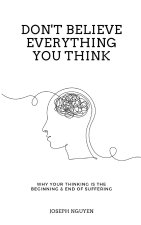
Don't Believe Everything You Think
13.96 € -15 % -

Heaven Official's Blessing: Tian Guan Ci Fu (Novel) Vol. 1
18.38 € -14 % -

Heaven Official's Blessing: Tian Guan Ci Fu Vol. 4
18.68 € -10 % -

Dune Messiah
8.93 € -22 % -

The Husky and His White Cat Shizun: Erha He Ta de Bai Mao Shizun (Novel) Vol. 5
20.23 € -3 % -

King of Sloth
10.67 € -18 % -

Heaven Official's Blessing: Tian Guan Ci Fu (Novel) Vol. 2
18.99 € -11 % -

Court of Thorns and Roses
9.23 € -21 % -

CHAINSAW MAN V14
11.19 € -15 % -

Court of Mist and Fury
9.44 € -21 % -

The Creative Act
24.03 € -13 % -
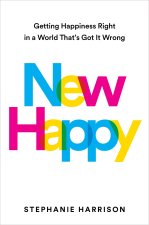
New Happy
23.31 € -18 % -

Icebreaker
9.13 € -24 % -

Berserk Deluxe Volume 7
48.06 € -6 % -

Harry Potter and the Chamber of Secrets: MinaLima Edition
30.09 € -24 % -
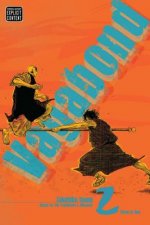
Vagabond (VIZBIG Edition), Vol. 2
26.39 € -8 % -

Little Mushroom: Judgment Day
17.35 € -18 % -

Dune
9.75 € -19 % -
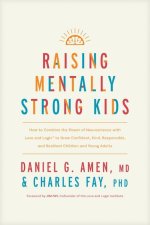
Raising Mentally Strong Kids: How to Combine the Power of Neuroscience with Love and Logic to Grow Confident, Kind, Responsible, and Resilient Child
25.57 € -13 %
Osobný odber Bratislava a 2642 dalších
Copyright ©2008-24 najlacnejsie-knihy.sk Všetky práva vyhradenéSúkromieCookies



 21 miliónov titulov
21 miliónov titulov Vrátenie do mesiaca
Vrátenie do mesiaca 02/210 210 99 (8-15.30h)
02/210 210 99 (8-15.30h)